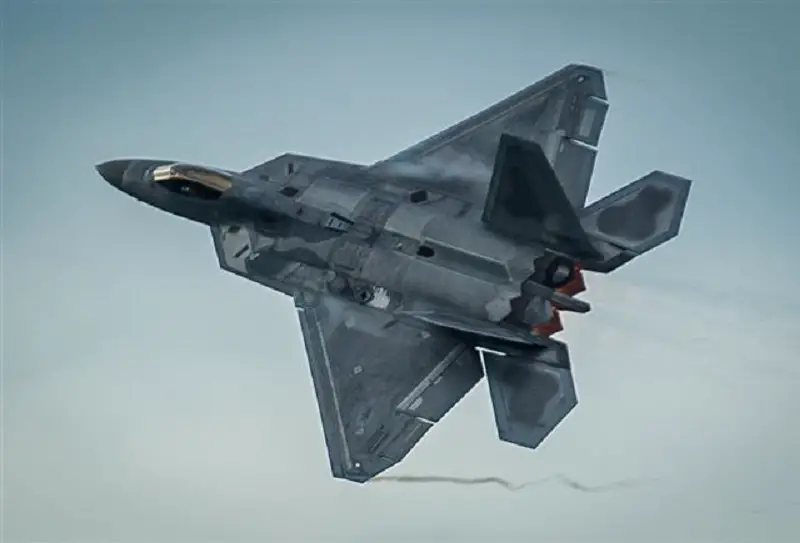The U.S. Air Force F-22s supporting NATO Allied Air Command’s Air Shielding mission along the eastern flank have executed an Agile Combat Employment deployment to Amari Air Base, Estonia on May 8 to deter aggression in the Baltic Sea region. The US fighters joined their Royal Air Force colleagues who are conducting NATO’s enhanced Air Policing mission out of Amari with their Eurofighter Typhoons. In early April, Joint Base Langley-Eustice’s 94th Expeditionary Fighter Squadron deployed 12 F-22s to Poland’s Powidz Air Base in support of the critical mission, which augments the Alliance’s Integrated Air and Missile Defence (IAMD) and Counter-Integrated Air Defence System (C-IADS) capabilities to safeguard the border along NATO’s eastern flank.
Rapidly fielding forces in the Baltic Sea region highlights the operational readiness of Allied forces and their ability to respond to defend NATO territory. The enhanced posture allows the Alliance to deter and mitigate any potential air and missile threat. The Air Shielding mission is a purely defensive mission designed to shield and protect Allied territory and populations and is a key component of NATO’s Deterrence and Defence Posture. The Baltic States of Estonia, Latvia, and Lithuania are situated on a critical air, land, and sea corridor, which requires a coordinated approach between Allies to maintain and sustain international freedom of maneuver throughout the region.

NATO Integrated Air and Missile Defence (NATO IAMD) is an essential and continuous mission in peacetime, crisis and conflict, safeguarding and protecting Alliance territory, populations and forces against any air or missile threat or attack. It is a vital element of NATO’s deterrence and defence, which contributes to the Alliance’s indivisible security and freedom of action, including NATO’s ability to reinforce its deployments and to provide a strategic response. NATO IAMD activities vary depending on the specific circumstances of any concrete situation and can include air policing; air defence; ballistic missile defence; cruise missile defence; counter rockets, mortar and artillery; or counter unmanned aircraft systems.
The Lockheed Martin F-22 Raptor is an American single-seat, twin-engine, all-weather tactical stealth fighter aircraft developed for the United States Air Force (USAF). As a product of the USAF’s Advanced Tactical Fighter (ATF) program the aircraft was designed as an air superiority fighter, but also incorporates ground attack, electronic warfare, and signals intelligence capabilities. The prime contractor, Lockheed Martin, built most of the F-22’s airframe and weapons systems and conducted final assembly, while Boeing provided the wings, aft fuselage, avionics integration, and training systems. The F-22 is expected to serve into the 2030s and eventually have its role succeeded by the USAF’s Next Generation Air Dominance (NGAD) manned fighter component.












